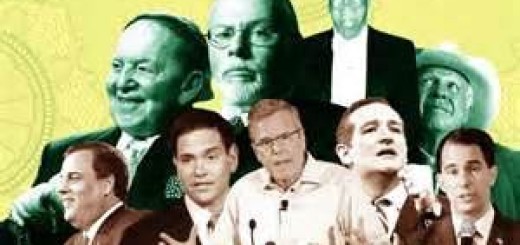First Impeachment: Striking Similarities Between Andrew Johnson, Trump
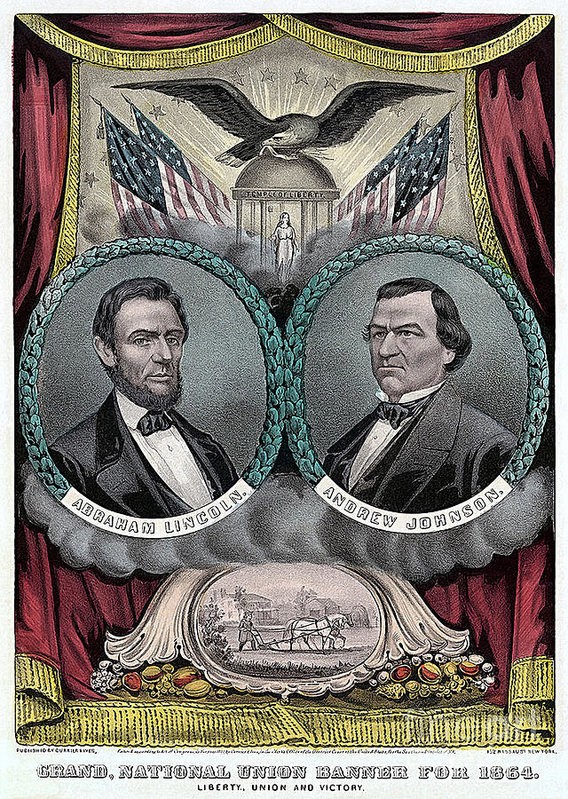
It seems the only difference between Andrew Johnson and Donald Trump is that Trump doesn’t drink.
Who could have predicted what Lincoln wrought when he chose Tennessee Democratic Senator Andrew Johnson to be his running mate for the 1864 presidential election?
Was Lincoln fooled by Johnson’s Unionist refusal to resign his Senate seat upon Tennessee’s secession from the Union, the only senator from a Confederate state to do so? It was whispered that Johnson harbored a deep resentment of the southern plantation aristocracy. The Tennessee career politician seemed like the perfect choice for a “unity ticket” for a nation exhausted by war, with the end seemingly in sight.
Lincoln didn’t flinch on inauguration day when Johnson, hung over and with a fresh belly-full of whiskey, delivered a disturbingly incoherent vice presidential address. “Andy ain’t a drunkard, ” Lincoln diplomatically promised.
Six weeks after the inauguration, Lincoln died of an assassin’s bullet. The Union triumphed, but the hard work of reuniting the nation would fall into the lap of Andrew Johnson. Would the United States of America carve a path towards a multi-racial democracy, or be the upholder of state-enforced white supremacy?
What followed was certainly not what Abraham Lincoln had in mind.
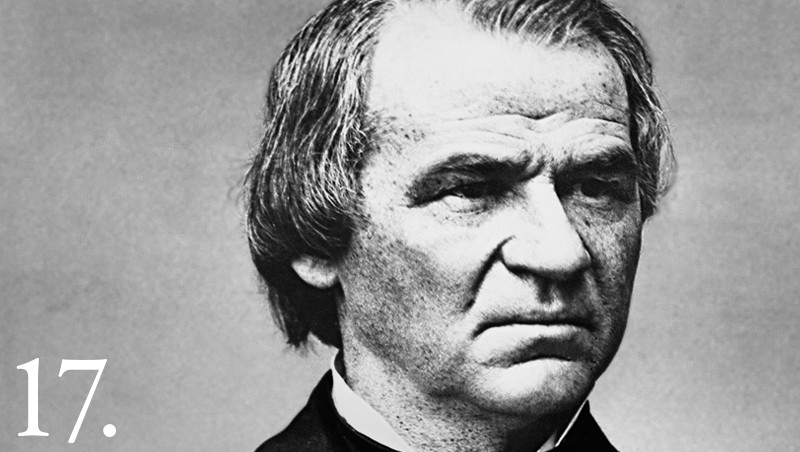
We now have a Congress considering the impeachment of our current president. The actions of Donald Trump draw striking parallels to Lincoln’s successor.
Above the Law
President Johnson seemed to hold the aberrant belief that since secession was unconstitutional, it basically never happened. Johnson made a series of proclamations directing seceded states to hold conventions and elections reestablishing their civil governments. Was there was no price to be paid for starting the bloodiest war in the country’s history?
“To Congress’s growing horror,” wrote MSNBC’s Chris Hayes in his review of the the book The Impeachers – The Trial of Andrew Johnson and the Dream of a Just Nation, “[Johnson] acted on this belief by giving pardons to Confederates and appointing traitors to positions of power throughout the South. This had predictable results: the reassertion of white supremacist power in the former slave states, and spasms of antiloyalist and antiblack violence.”
The reign of racist terror didn’t seem to bother the president. Johnson was heard to say, “This is a country for white men, and by God as long as I am president, it shall be a government for white men.”
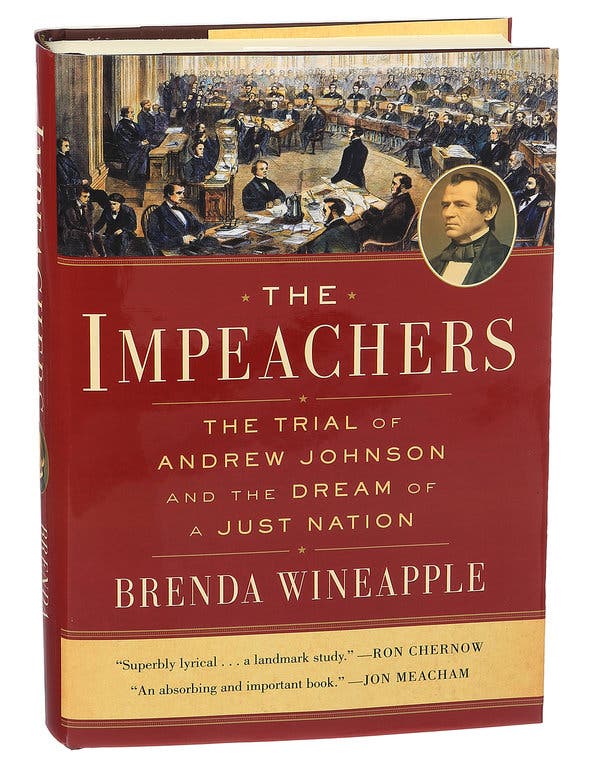
Indeed, when Southern states passed “Black Codes” to deprive freed slaves of their civil liberties, Congressional Republicans (in the 19th century, the good guys) refused to seat secessionist legislators and passed legislation to halt violent mob rule. Johnson vetoed all such bills.
His vetoes prevailed until the 1866 midterm elections, when Congressional Republicans (I know, it’s hard to imagine, but these were the good guys in 19th century America) captured veto-proof majorities.
Vilifying Political Opponents
On February 22, 1866, on George Washington’s birthday, President Johnson gave a speech ostensibly to honor our first president. In the hour-long rambling address, Johnson referred to himself over 200 times and spoke of “men…still opposed to the union” to whom he could not extend the hand of friendship he gave to the south.
When the crowd inquired who these men were, Johnson rattled off various Republican legislators who believed in impartial justice to all races and accused them of plotting Johnson’s assassination. Like our current president, Andrew Johnson made the whole thing up.
At War With Congress
Concerned about the growing racial violence in the South, the Republican-dominated Congress drafted a bill to grant basic human rights to freed slaves. The 1866 Civil Rights Act granted citizenship to all persons born in the US. Newly enfranchised former slaves could for the first time “make and enforce contracts, sue and be sued, give evidence in court and inherit, purchase, lease, sell and hold real estate and personal property.”
Of course President Johnson opposed the bill. He proclaimed that blacks were not qualified to become US citizens. Despite pleas from moderate members of Congress, Johnson promptly vetoed the bill.
This time around, Congress overrode a presidential veto, the first time that had occurred on a major bill in American history. The 14th Amendment to our Constitution codified the Civil Rights Act ensuring that freed blacks were US citizens. Johnson vetoed that one also. Of course that veto was overridden.
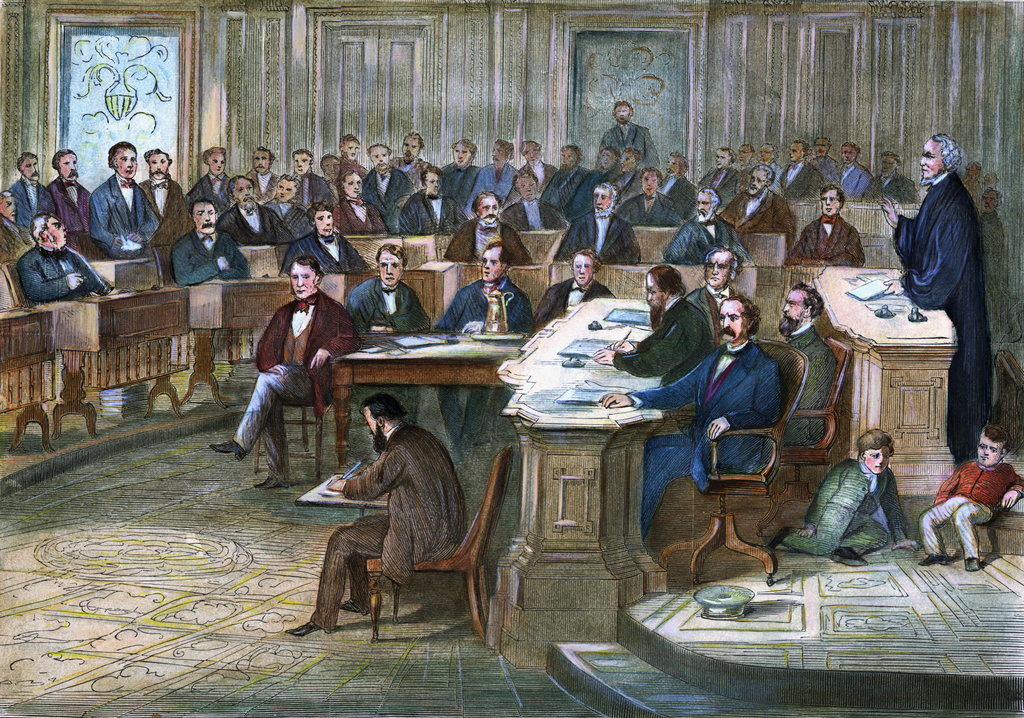
The First Impeachment
Johnson’s vetoes of the Civil Rights Act and the 14th Amendment were the proverbial straws in the minds of Congressional Republicans. The problems Congress had with Johnson should be familiar to anyone following current events: the president was a racist demagogue unfit for the highest office in the land. But were they impeachable offenses? Did they clear the bar of “high Crimes and Misdemeanors”?
Congress came up with a solution: the Constitutionally-dubious Tenure in Office Act. The law required the president to get Senate approval to discharge his own cabinet appointees. Johnson took the bait: He fired his Secretary of War Edwin Stanton.
And so begun the first impeachment of a president in US history. You know the outcome: President Johnson survived conviction in the Senate by one vote.
What is constructive to today’s discourse is not necessarily the outcome but the process of impeachment itself. We had a president who at various times considered himself above the law, was defiant of Congress and who lied about political opponents. And yet, Johnson’s impeachment trial was more about proceduralism than presidential malfeasance.
The words of future president James Garfield, who was then a member of Congress, ring prescient when Garfield complained that “this trial has developed in the most remarkable manner of insane love of speaking among public men. Here we have been wading knee deep in words, words, words.”
Are you listening, Democrats?

